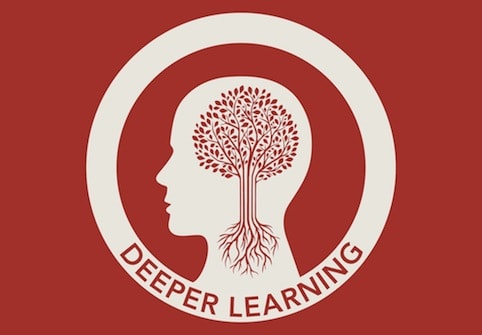Post-Secondary
Post-secondary is a shifting space — four year degrees may not always be the fit and new alternatives are being created at an alarming rate. This topic encompasses everything from higher ed to adult learning and workforce pipelines and development.
Despite Bad News, Progress is Possible
I have a hard time watching evening news--especially in the last few weeks--the headlines are hard to swallow. You can’t help but assume that things are getting worse. It’s depressing. But the news doesn’t give you an accurate picture of the long term trends that are making life better for more people on this planet.
Time’s Person of the Year: (It Should Be) The Crowd
Crowdsourcing has had its greatest impact on funding, knowledge collection and curation, and creation and production. All of these are key issues for today’s educators, both at the leadership level and in the classroom. Gen Z students were born in the middle of this crowdsourcing phenomenon, except they don’t recognize it as a phenomenon. It is what it is, just part of their world.
Infographic: Who Is the Online Student?
Who is the online student? According to OnlineDegrees.org, the online student falls into two categories: for-profit and non-profit institutions. These students are typically over the age of 35 earning less than $15k to $40k a year.
Powering the Real Revolution in Higher Education
We've heard a lot about Massively Open Online Courses (MOOCs) -- the breakout trend of the year -- but it's still a fringe concept feeding what Clayton Christensen calls non-consumption. The real story is how the diverse web of nearly 5,000 institutions (broadly speaking) of higher learning in the U.S. are responding to cost pressure, calls for higher completion rates and better job preparation, and student demands for relevance.
Extreme Learning and the University Professor
In part 2 of our sereis on Dr. Curtis Bonk’s extreme learning research, we look at ways to integrate the best practices of fieldwork into your curriculum.
Getting Smart Connects Digital Learning & Deeper Learning In Latest White Paper
Getting Smart® today launches “How Digital Learning Contributes to Deeper Learning,” a white paper that examines how key aspects of personal digital learning - common standards, next-generation assessments, blended learning, and affordable devices - can provide deeper learning opportunities for students.
McKinsey Report on Edu to Employment: Useful Frame, Missing Innovation
McKinsey released a report called Education to Employment: Designing a System that Works. The six findings are rationale but fall short on the innovation front. The big sector wide solutions that the McKinsey team described will be beneficial when and where the occur. In the mean time, watch for organic solutions that emerge around new skills acquisition capabilities and marketing signaling strategies.
World Education University Disrupts the Cost of Higher Education
Massively Open Online Courses (MOOCs) were thetop megatrend of 2012. MOOCs made theshift from curiosity to employability. Antioch University is proving that it's getting easier to convert a MOOC experience into college credit. ACE is close behind, evaluating Coursera courses for credit. EdX and the Gates Foundation partnered this month to offer MOOCs at MassBay Community Colleges, proctored through Pearson VUE.
How MOOCs Already Changed Higher Ed in 2012
As we all know, cost is the major reason that students drop out of college, with the two highest cost factors being tuition and textbooks. In 2012, we have talked a lot of the potential of MOOCs to make higher education more open, more affordable and more responsive to employers’ needs than the traditional university structure.
College Board Improves AP Exams & Supports For Deeper Learning & College Readiness
College Board , the longtime leader in college credit opportunities in high school, is changing its Advanced Placement (AP) approach to emphasize depth over breadth, improving formative assessment, and adding an integrative experience.









